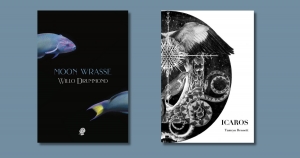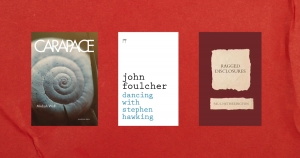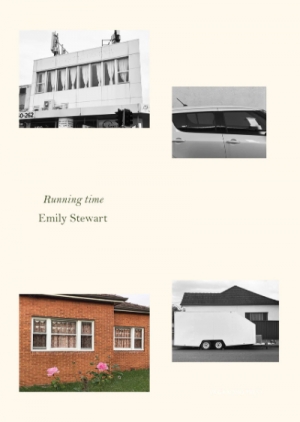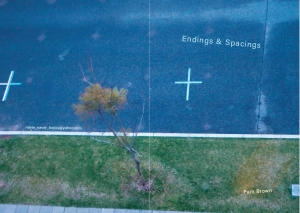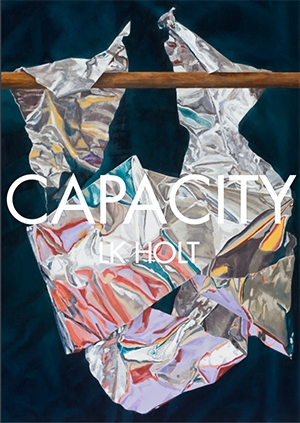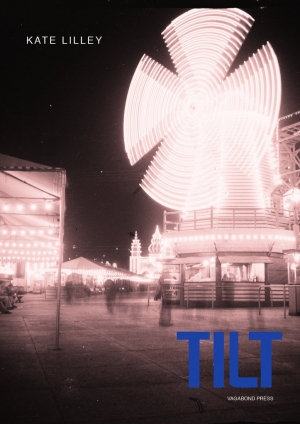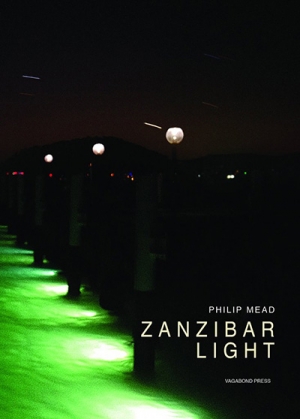Vagabond Press
Tamryn Bennett’s Icaros and Willo Drummond’s Moon Wrasse both use the natural as their central motif. Nature has of course always been a font of inspiration for poets. These two poets draw from that font in vastly different ways. Bennett’s title refers to a form of South American song that is chanted during rituals of cleansing and healing that involve plants. Drummond’s refers to a hermaphroditic fish, the moon wrasse, which acts as a symbol of transformation.
... (read more)Paul Hetherington’s Ragged Disclosures (Recent Work Press, $19.95 pb, 112 pp) choreographs its prose poems carefully, which is unsurprising from the co-author and co-editor, respectively, of a scholarly book on prose poetry and Anthology of Australian Prose Poetry (both 2020). His new collection employs a lyric-dramatic mode, which Fernando Pessoa described as ‘lyric poetry put into the mouths of different characters’. It features a ‘he’ and a ‘she’ with a ‘shared / Australian vernacular’, in a long, glancing dialogue. These appear most direct in nine ‘Ragged Disclosures’, each comprising three square poems which are bordered and interlinked. ‘Ragged Disclosures 1’ offers a clue to the text: ‘Their ragged / intersections make an unjoined, / searching rapport.’ The poems between these seem to represent this ‘searching rapport’ through shared experience in Rome, Venice, and various other locales, with pronominal shifts to ‘I,’ ‘we’, and ‘you’.
... (read more)Anders Villani reviews 'Running time' by Emily Stewart and 'Inheritance' by Nellie Le Beau
The lyric subject, literature’s most intimate ‘I’, has vexed critics for centuries. Is it the poet? Is it a fiction, a device? Or is the relation between author and speaker, as Jonathan Culler suggests, ‘indeterminate’, such that ‘any model … that attempts to fix or prescribe that relationship will be inadequate’? Two new award-winning Australian poetry collections offer fine-grained considerations of personhood and the poem’s capacity to represent it.
... (read more)Abigail Fisher reviews 'Endings & Spacings' by Pam Brown and '>>> & || (accelerations and inertias)' by Dan Disney
‘Endings & Spacings’ opens with a confession: after several decades of ‘making connections / through strings of words’, Pam Brown is no closer to answering the question, ‘what does a poet / do’? In interviews, Brown tends to describe writing poetry as a kind of ‘benign compulsion’, an engagement with the world that must be critical to be interesting but that ‘can’t answer questions any better than anything else’, as she asserted in Meanjin in 2001 and has resolutely maintained ever since. In her latest collection, Endings & Spacings, even this benign compulsion – ‘dwindling now’ – comes under threat, its benignity troubled by the resemblance between arranging lines on the page and the curation of fragments in a virtual ‘museum / of imperial plunder’.
... (read more)Joan Fleming reviews 'Capacity' by LK Holt and 'Theory of Colours' by Bella Li
These days, poetry is primarily a visual experience. So claims the American poet and theorist Cole Swensen, whose essay ‘To Writewithize’ argues for a new definition of ekphrasis. Traditionally understood to be writing about visual art, ekphrasis typically has a poet stand across from a painting or sculpture, in a kind of face-off, and write about it. To ‘writewithize’, however, is to take a different approach: this is not writing made about art but made with it. This is writing that, in Swensen’s words, ‘lives with the work and its disturbances’. Two new Vagabond releases by Bella Li and LK Holt are doing ekphrastic and intertextual work that is exquisitely disturbing. These are moody books of allusion and visual play by two of Melbourne’s most brilliant poets.
... (read more)New poetry collections by Jazz Money, Ann Vickery, and Lucy Van
Good poetry uncovers the secret in the manifest, and the manifest in the secret. Three new collections throw this paradox into vibrant, unsettling relief. Each book deserves a broad readership. Each beats back the lethargic thinking that has invaded society under the cover of the pandemic.
... (read more)‘Even if truth be drawn from the work,’ writes Maurice Blanchot, ‘the work overruns it, takes it back into itself to bury and hide it.’ This strange, poetic movement to conceal what is manifest brings to mind another statement, by the psychiatrist and author Judith Herman: ‘The conflict between the will to deny horrible events and the will to proclaim them aloud is the central dialectic of psychological trauma.’
... (read more)Peter Boyle’s Enfolded in the Wings of a Great Darkness (Vagabond Press, $25 pb, 82 pp) is a book-length elegiac poem dedicated to his partner, the anthropologist Deborah Bird Rose (1946–2018). Unlike other works lamenting the illness and loss of a spouse, Boyle’s collection largely avoids representing the day-to-day demands of suffering from (or caring for someone suffering from) an incurable disease. Instead, Boyle’s poetry sequence offers a more metaphysical approach to the uncertainty and grief that he and his partner faced.
... (read more)A few pages into this collection we read the line: ‘all of it is lies’. ‘It’ signals the irritation that motivates much of Pam Brown’s writing in click here for what we do. Memory, in these poems, is a problem. Brown’s is very much a poetry of movement: she desires to stay light and mobile, not to be detained by memory ...
... (read more)There is a shimmering, ludic intelligence to this collection of poems, Philip Mead’s first since 1984. The word ‘comeback’ is apt, with its grace note of gladness for renewed possibilities. Opening any new work, the anticipation is acute: will I be changed by reading this, and if so, how? What might I think, feel, or recognise ...
... (read more)
